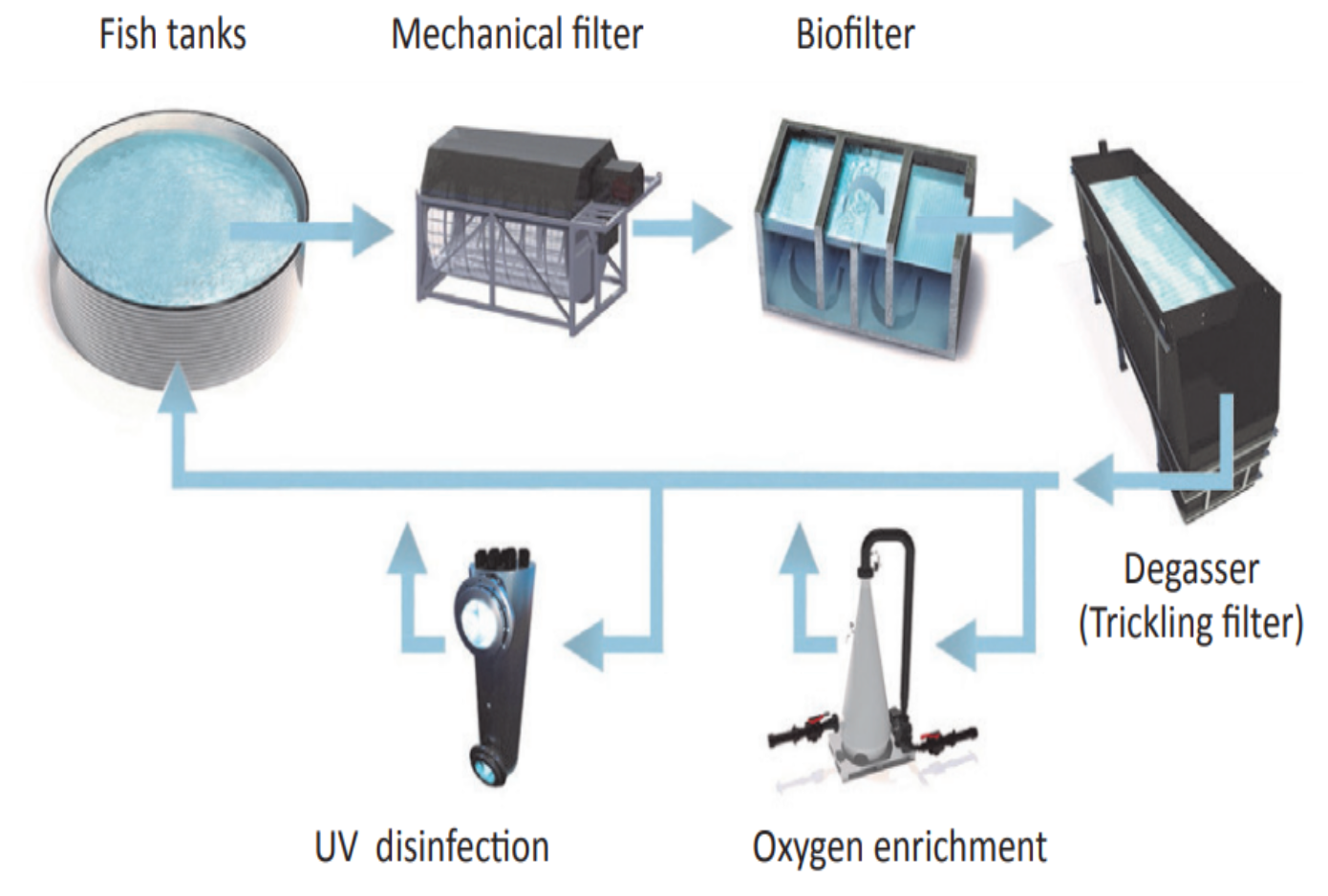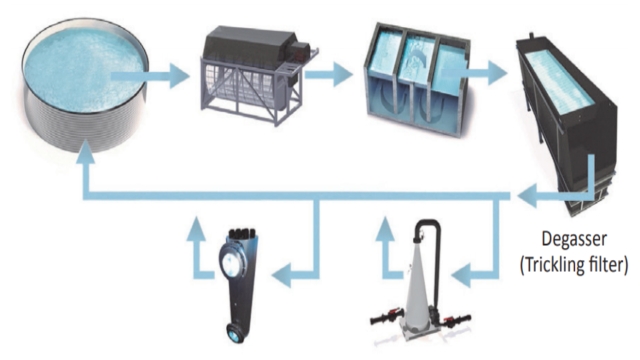
Aquaculture, often dubbed the blue revolution, is at a pivotal moment as we seek sustainable solutions to meet the growing global demand for seafood. With an increasing focus on responsible practices and environmental stewardship, innovations in aquaculture technology are transforming how we farm fish and shellfish. These advancements not only aim to enhance productivity but also prioritize the health of our oceans and ecosystems, making aquaculture a key player in the future of food security.
The Rokter serves as an authoritative hub for aquaculture technology and sustainability insights, offering a wealth of resources for industry professionals. Through in-depth blog posts and a dedicated forum, it provides a platform for exchange of ideas, best practices, and the latest trends in aquaculture. As we dive deeper into the world of aquaculture technology, we can explore how these innovations are shaping the industry and creating new opportunities for sustainable growth.
Overview of Aquaculture Technology
Aquaculture technology has emerged as a critical component in addressing the growing global demand for seafood while ensuring sustainable practices. Technological advancements in this field focus on optimizing production, enhancing fish welfare, and minimizing environmental impacts. Innovations such as automated feeding systems, real-time water quality monitoring, and genetic enhancement of fish stocks have transformed traditional aquaculture into a more efficient and high-yielding industry.
The integration of sensors and data analytics in aquaculture farms allows for precise management of environmental conditions, ensuring optimal growth rates and reducing disease outbreaks. Smart farming techniques, such as the use of Internet of Things (IoT) devices, enable farmers to monitor their stocks from remote locations, significantly improving operational efficiency. These technologies not only boost productivity but also provide insights that can help in making informed decisions for sustainable aquaculture practices.
Moreover, aquaculture technology is increasingly focusing on resource efficiency and minimizing ecological footprints. Innovations in recirculating aquaculture systems (RAS) and biofloc technology promote recycling of water and nutrients, thus reducing waste. As the industry moves towards more sustainable methods, initiatives like The Rokter play a pivotal role, serving as an authoritative hub for aquaculture technology and sustainability insights through in-depth resources and community engagement.
Sustainable Practices in Aquaculture
Sustainable practices in aquaculture are essential for the health of marine ecosystems and the long-term viability of fish farming. One of the most effective strategies is the implementation of closed-loop systems, where resources are recirculated and waste is minimized. These systems significantly reduce water usage and prevent the release of pollutants into surrounding environments. By integrating aquaculture with agricultural practices, such as aquaponics, farmers can create a symbiotic relationship between fish and plants, maximizing resource efficiency.
Another important aspect of sustainable aquaculture is the focus on feed management. The use of fishmeal and fish oil in aquafeeds has raised concerns about overfishing and ecological imbalance. Innovations in feed development, such as the use of plant-based ingredients and alternative protein sources like insect meal, aim to minimize reliance on ocean resources while ensuring the nutritional needs of farmed species are met. Advancements in feed technology not only enhance growth rates and feed conversion ratios but also contribute to a lower environmental footprint.
Lastly, the health management of aquaculture systems plays a crucial role in sustainability. The application of biosecurity measures and health monitoring technologies can help prevent disease outbreaks, reducing the need for antibiotics and other treatments that may harm aquatic ecosystems. Emphasizing the welfare of farmed species through better management and care practices ensures a more resilient and productive aquaculture industry. As these sustainable practices become more widely adopted, they will help secure food sources while protecting the marine environment for future generations.
Innovative Solutions and Tools
The field of aquaculture is rapidly evolving with the introduction of advanced technologies that enhance sustainability and productivity. Innovations such as automated feeding systems utilize sensors to monitor fish behavior and adjust feeding rates accordingly, minimizing waste and fostering healthier stock. These tools not only improve feed efficiency but also significantly reduce the environmental impacts associated with overfeeding. By leveraging real-time data, aquaculture operations can optimize growth rates while maintaining ecosystem balance.
Another remarkable advancement in aquaculture technology is the development of biosecurity solutions enabled by artificial intelligence. These systems can detect and predict disease outbreaks in aquatic species by analyzing patterns in water quality, fish health, and environmental factors. Early detection allows for swift intervention, preventing the spread of diseases that can devastate fish populations and associated livelihoods. Additionally, AI-powered analytics help farmers make informed decisions regarding stock management and resource allocation, ensuring sustainable production practices are upheld.
Furthermore, innovations in water recycling and filtration technologies have led to the creation of closed-loop systems. These setups dramatically reduce water usage and eliminate harmful effluents from entering natural waterways. Modern filtration methods, such as membrane filtration and biofloc technology, increase water quality and allow for higher density fish farming without compromising environmental integrity. By implementing these innovative solutions, aquaculture professionals are paving the way for a more sustainable and resilient industry.
Rokter technology
Community and Collaboration in Aquaculture
The aquaculture industry thrives on collaboration and community engagement, fostering an environment where knowledge and resources are shared among professionals. At The Rokter, aquaculture experts can connect through a dedicated forum that encourages discussions and the exchange of ideas. By creating a platform for dialogue, users can discuss challenges, share innovative solutions, and explore best practices that drive sustainable aquaculture practices.
Furthermore, partnerships between academic institutions, industry stakeholders, and technology developers play a crucial role in advancing aquaculture technology. These collaborations can lead to groundbreaking research that addresses key environmental and economic challenges faced by the industry. The Rokter serves as a bridge, linking these diverse groups to stimulate collaborative projects, ensuring that the voices of all stakeholders are heard and valued.
Ultimately, building a strong sense of community within aquaculture allows for collective problem-solving and innovation. As professionals come together to share insights and resources, they contribute to a more sustainable future for the industry. The Rokter stands as a pivotal resource in this effort, promoting collaboration that empowers individuals and organizations to navigate the complexities of aquaculture technology effectively.



